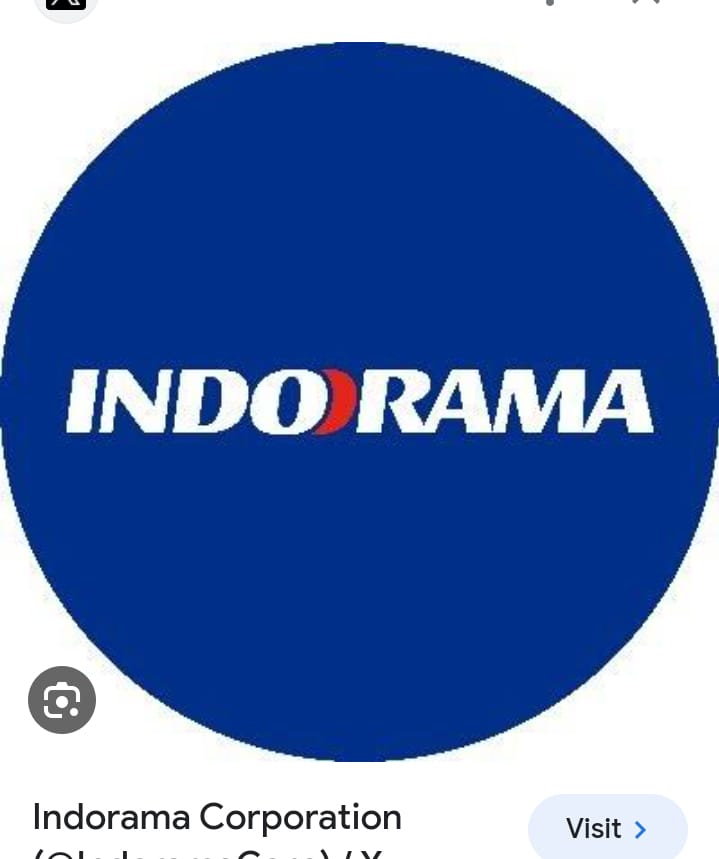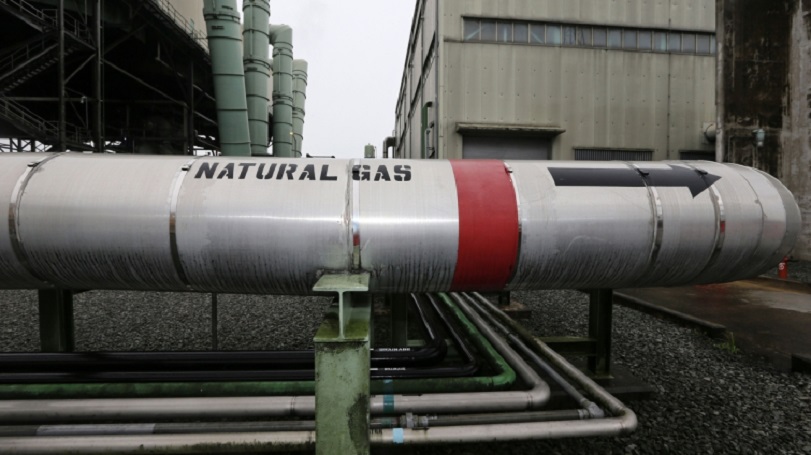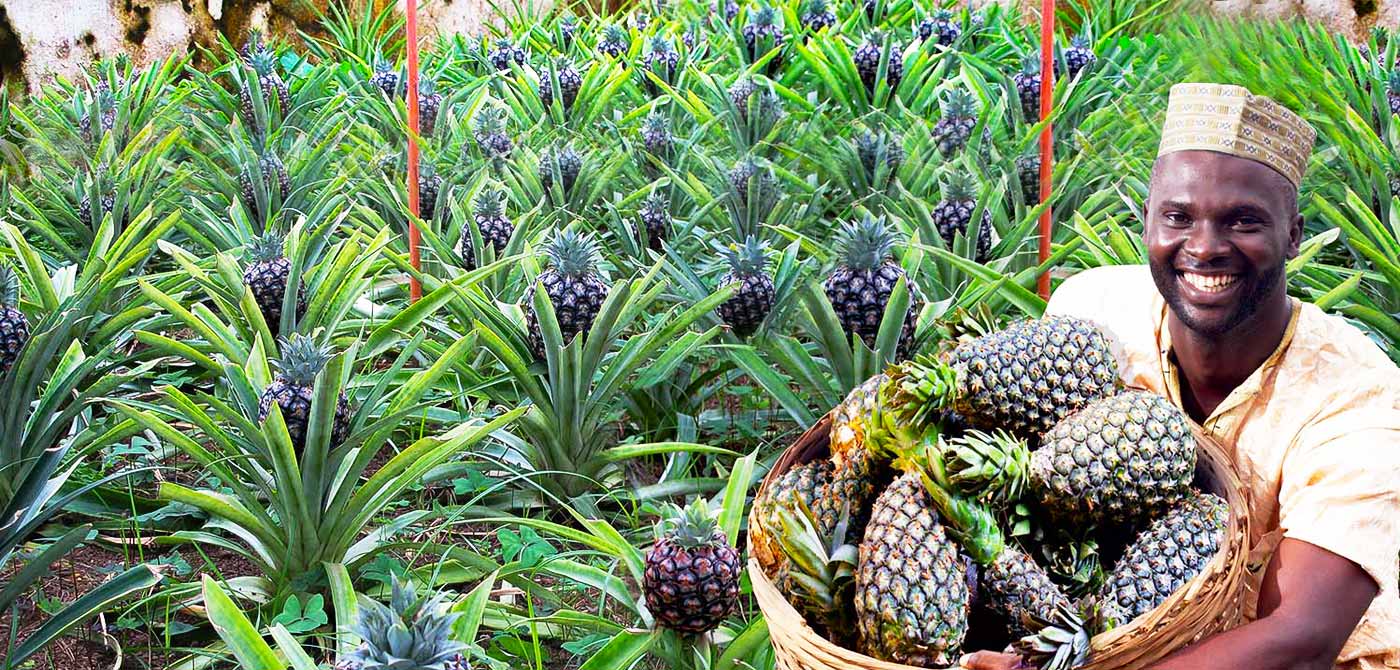General
Indorama Gets $1.25bn Loan to Ramp up Fertilizer Production in Nigeria

By Adedapo Adesanya
Indorama Eleme Fertilizer and Chemicals Limited Nigeria has received a $1.25 billion financing package to ramp up its fertilizer production and develop a port terminal for exports, supporting food production and food security across regional and international markets, while fostering job creation in Nigeria.
The investment came from the International Finance Corporation (IFC ) alongside the African Development Bank (AfDB), Bangkok Bank, British International Investment, Citibank, Deutsche Investitions- und Entwicklungsgesellschaft (DEG), DZ Bank, and Emerging Africa Infrastructure Fund (EAIF).
Others include Rand Merchant Bank, Nederlandse Financierings-Maatschappij voor Ontwikkelingslanden (FMO), Export-Import Bank of India (India Exim Bank), Export-Import Bank of Korea (KEXIM), the Standard Bank Group, Standard Chartered Bank, and the United States International Development Finance Corporation (DFC).
The financing package will fund Indorama’s plans to develop a third nitrogenous urea fertilizer production line and a new shipping terminal at its operations in Port Harcourt. The new production line is expected to have an annual capacity of 1.4 million metric tons of urea, one of the most widely used fertilizers worldwide.
The $1.25 billion facility includes a $215.5 million loan from IFC’s account; a $94.5 million loan through the Managed Co-Lending Portfolio Program (MCPP); and $940 million financing mobilized from other development finance institutions and commercial banks. Joining IFC as joint mandated lead arranger and lender is Sumitomo Mitsui Banking Corporation (SMBC), Singapore Branch.
As part of the project, Indorama will implement a greenhouse gas (GHG) emissions strategy to reduce emissions at its petrochemical complex by 32 per cent by 2026, including by significantly reducing gas flaring and other improvements. This strategy aligns with Nigeria’s pledge to eliminate routine gas flaring by 2030 under the World Bank-led Global Gas Flaring Reduction Partnership.
Indorama’s two operational urea fertilizer lines serve Nigeria’s domestic market, supporting the country’s agricultural sector, which accounts for a quarter of its GDP and employs about a third of its labour force. The new production line and terminal, which will help meet the growing global demand for fertilizer, are expected to create up to 8,000 direct and indirect jobs.
Speaking on this, Mr Amit Lohia, Group Vice Chairman, Indorama Corporation, said, “We are grateful to our financial partners for their unwavering support and confidence. IFC has been a key partner for Indorama in Nigeria for almost two decades.
“This financing demonstrates the strong collaboration and alignment of interests between the public and private sectors to drive sustainable development and create value for all stakeholders.
“Indorama remains dedicated to playing a vital role in supporting global food security by ensuring a consistent supply of high-quality fertilizers in Africa, and beyond while contributing to Nigeria’s broader economic objectives.”
Manish Mundra, Group Director for Africa, Indorama Corporation, said, “The establishment of this fertilizer plant underscores Indorama’s unwavering commitment to Nigeria’s industrial growth, economic diversification, and leveraging its strategic geographic location. This landmark financing represents a pivotal moment in Nigeria’s journey towards becoming a major player in the global fertilizer market.
“With the addition of this third line, Nigeria is prepared to significantly ramp up its export capacity, thereby enhancing its position as a key exporter of fertilizers to Africa and the world. Furthermore, the establishment of this fertilizer plant will not only address critical issues such as broader food security but will also stimulate agricultural growth and create employment opportunities in Nigeria.”
Mr Sérgio Pimenta, IFC Vice President for Africa, said, “Reliable access to high-quality fertilizer is essential for food production and food security around the world. IFC’s investment in Indorama, along with African, Asian, European, and American partners, signals our joint commitment to support the agriculture sector, Nigeria’s economy, and the expansion of Indorama, an important supplier in the global food chain.”
Ms Monika Beck, Member of DEG’s Management Board, said “Indorama is a long-term client, as DEG has been the first DFI to finance the company. This recent investment, again, underlines our trustworthy cooperation. DEG’s special contribution to this transaction lies in trainings for smallholder farmers as part of the DeveloPPP programme. IFC and DEG have been financing partners for 30 years.”
Mr Benson Adenuga, Head of Office and Coverage Director for Nigeria at British International Investment, said, “We are delighted to partner with IFC, other impact investors, and the development finance community on this project, which will boost fertilizer production in Nigeria, support food security and create jobs. Our ongoing commitment to back Indorama’s expansion will also help to elevate Nigeria’s export potential and support the diversification of its economy.”
Mr Ousmane Fall, Acting Director, Industrial and Trade Development Department at the African Development Bank (AfDB), said “The AfDB is proud of its continued partnership with Indorama, the IFC and other lenders on this critical project as it is aligned with our strategic priorities to Feed Africa and Industrialize Africa while generating significant development outcomes in Nigeria.”
In addition, Mr Freddy Ong, Head of Client Coverage, Singapore, Corporate, Commercial and Institutional Banking at Standard Chartered Bank, said, “We are pleased to participate in this transaction, one of the many we have been a part of during our long-standing relationship with Indorama since 1997.
“We have been proud partners to Indorama across Standard Chartered’s footprint markets and especially at Indorama Eleme Fertilizer and Chemicals Limited, where we have remained engaged since its inception.
“With this latest financing, we look forward to the successful completion of Indorama Eleme Fertilizer and Chemicals’ facility and the expansion of its urea fertilizer capacity that will help address global food security and strengthen its position as a leading supplier of essential materials in the global food ecosystem.”
General
Court Acquits Abba Kyari of 23-Count Asset Declaration Charge

By Adedapo Adesanya
Justice James Omotosho of the Federal High Court in Abuja has discharged and acquitted the suspended Deputy Commissioner of Police Abba Kyari of a 23-count charge of alleged non-declaration of assets filed against him by the National Drug Law Enforcement Agency (NDLEA).
Mr Kyari is being charged alongside his two brothers, who were accused of swearing to false affidavits to conceal the origin of some properties.
The court in its judgment held that the NDLEA failed to provide sufficient evidence to prove its case against the defendants, which is mostly the non-declaration of land properties.
Justice Omotosho noted that proving ownership of landed properties can be done through traditional history, title, acts of possession and possession by connection.
The prosecution did not provide any of these documents to show that the said properties located in Fountain Estate, Kasana, which belong to Ramatu Kyari, are truly owned by the police officer.
Also, the court held that the prosecution did not provide the same material evidence linking Mr Kyari to properties in Linda Choko Road, Asokoro and also Maiduguri in Borno State.
Mr Kyari, in his defense said the properties in Borno belonged to his father, which he left for him and his siblings.
It was judged that the prosecution did not prove otherwise, adding that the prosecution charged Mr Kyari’s brothers in bad faith for alleged conspiracy, which they failed to prove.
General
NCC Arraigns Netnaija’s Emma Analike Over Alleged Copyright Infringement

By Modupe Gbadeyanka
The chief executive of Netnaija Media Enterprises, Mr Emmanuel Analike, has been arraigned before a Federal High Court sitting in Abuja by the Nigerian Copyright Commission (NCC).
The suspect appeared before Justice Suleiman Liman on Wednesday over allegations bordering on copyright infringement.
He was accused by the NCC of using his online platform to make movies and others not belonging to him available for users to download on the internet.
According to the agency, Mr Analike has infringed copies of audio-visual materials distributed online via his website for online users. Netnaija is an online movie and music download site.
The prosecution counsel, Ms Gladys Isaac-Ojo, who works with the NCC, told the court that the defendant committed an offence contrary to and punishable under Section 44 (1) (a) of the Copyright Act, 2022.
However, Mr Analike pleaded not guilty to the charges preferred against him, prompting his counsel, Nnemeka Ejiofor, seek his bail.
The lawyer informed the court that the application was filed on Monday and supported by 23 paragraphs of affidavits and a written address.
But the judge refused to give a bench ruling and adjourned the ruling of the bail application to Monday, March 9, 2026, ordering the remand of the Netnaija chief in Kuje Correctional Centre.
General
Entries Open for ClimateLaunchpad Green Business Ideas Competition

By Modupe Gbadeyanka
Entries for the 2026 edition of the world’s largest green business ideas competition, ClimateLaunchpad, have opened.
In 2025, the programme, organised by Climate KIC, received over 2,700 applications from 40 countries. The winning ventures gain prize money, investor connections, and access to a global cleantech network.
This year’s edition is expected to be bigger and better, with climate innovators, green venture builders, and entrepreneurs from around the world given the opportunity to apply.
Since its inception in 2014, the programme has supported nearly 5,000 ideas across 97 countries, and this year, it is expanding its presence in Asia with Singapore hosting both the regional final and global grand final for the first time.
Participants move through several stages, including an initial mini-course to refine the concept, an intensive multi-day Boot Camp led by expert trainers, targeted coaching to perfect value propositions and investor pitches, national and regional finals, and a place at the global grand final, with prizes and access to a global climate network.
“Strengthening ClimateLaunchpad’s presence in Asia marks a profound new chapter for this programme and for the climate innovation movement more broadly. Asia is where so much of the world’s climate and nature future will be shaped, through business leadership, public-private partnerships and long-term strategic thinking,” the chief executive of Climate KIC, Kirsten Dunlop, stated.
“We look forward to supporting this momentum with new business ideas and innovation ecosystem collaborations across more than a dozen countries.
“This expansion opens space for deeper cross-cultural connections and for first-time founders to turn sparks of imagination into solutions that serve both people and planet,” Dunlop added.
Also commenting, the chief executive of Better Earth Ventures, Ms Rebecca Sharpe, said, “We are proud to host ClimateLaunchpad’s regional and global grand final in Singapore and to convene an international group of climate entrepreneurs from more than 50 countries.
“Climate solutions are emerging from every corner of the world, and bringing them together creates the kind of cross-border exchange and collaboration this moment demands. Our focus is to ensure early-stage founders have the structure, ecosystem access and support needed to move from idea to credible impact.”
-

 Feature/OPED6 years ago
Feature/OPED6 years agoDavos was Different this year
-
Travel/Tourism10 years ago
Lagos Seals Western Lodge Hotel In Ikorodu
-

 Showbiz3 years ago
Showbiz3 years agoEstranged Lover Releases Videos of Empress Njamah Bathing
-

 Banking8 years ago
Banking8 years agoSort Codes of GTBank Branches in Nigeria
-

 Economy3 years ago
Economy3 years agoSubsidy Removal: CNG at N130 Per Litre Cheaper Than Petrol—IPMAN
-

 Banking3 years ago
Banking3 years agoSort Codes of UBA Branches in Nigeria
-

 Banking3 years ago
Banking3 years agoFirst Bank Announces Planned Downtime
-

 Sports3 years ago
Sports3 years agoHighest Paid Nigerian Footballer – How Much Do Nigerian Footballers Earn
















